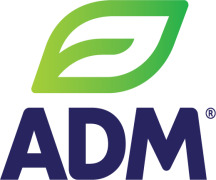News
What can blockchain do for the food industry?
1 Nov 2018International food companies have started to embrace blockchain technology to help trace food and ingredients all along the supply chain. What are the potential benefits for the industry?

Blockchain technology refers to a system that creates a permanent digital record of food ingredients each time they change hands, from seed, farm or fishery, to the end consumer. Each transaction related to a particular ingredient becomes a block of information and these blocks add together to create a detailed picture of the supply chain. Everyone in the supply chain can access the complete record, but no one can edit it without the authorisation of every other participant. In the food industry, the technology could help standardise and centralise information about how ingredients are sourced and handled.
Most recently, major commodity ingredient companies, including Bunge, Archer Daniels Midland, Louis Dreyfus Company and Cargill have been exploring blockchain among other digital solutions to help make transactions more efficient and transparent. They say it could help shorten ingredient storage times and reduce the time and money spent on processing traditional documents.
Blockchain has been hailed as a major step forward for food recalls in particular, in cases of foodborne illness or the presence of unintended allergens, for example. If implemented at all points along the supply chain, the technology could assist with product recalls because products can quickly and easily be traced from their source to their destination – but it can also be used in other ways, such as to trace how well a product has been refrigerated or to improve shelf life estimates. It can also be used to help prevent food fraud, and to ensure food ingredients are what they claim to be in other ways, such as organic, sustainable or Fair Trade.
Some major retailers are also getting on board with blockchain. In the United States, Walmart recently mandated the technology for suppliers of items including fresh leafy greens, mangos and pork, following a series of high profile foodborne illness outbreaks last year. In Australia and New Zealand, Alibaba, along with several other retailers, has implemented a blockchain system in combination with QR coded products to help protect against food fraud. It also plans to open the platform so consumers can track products via their mobile phone, potentially boosting consumer confidence in the provenance of their foods.
Other food companies using the technology include global giants like Nestlé, Unilever and Tyson Foods. Unilever, for example, has partnered with UK supermarket chain Sainsbury to track tea shipments from Malawi, and to give preferential treatment to those that use sustainable farming practices.
The technology comes at a crucial time for the food industry, as it has become increasingly fragmented and decentralised. And as consumers are increasingly sceptical about the authenticity of their foods – and the trustworthiness of the food industry itself – blockchain could be a key tool to improve consumer trust, while also ensuring safer and more sustainable supply chains.



